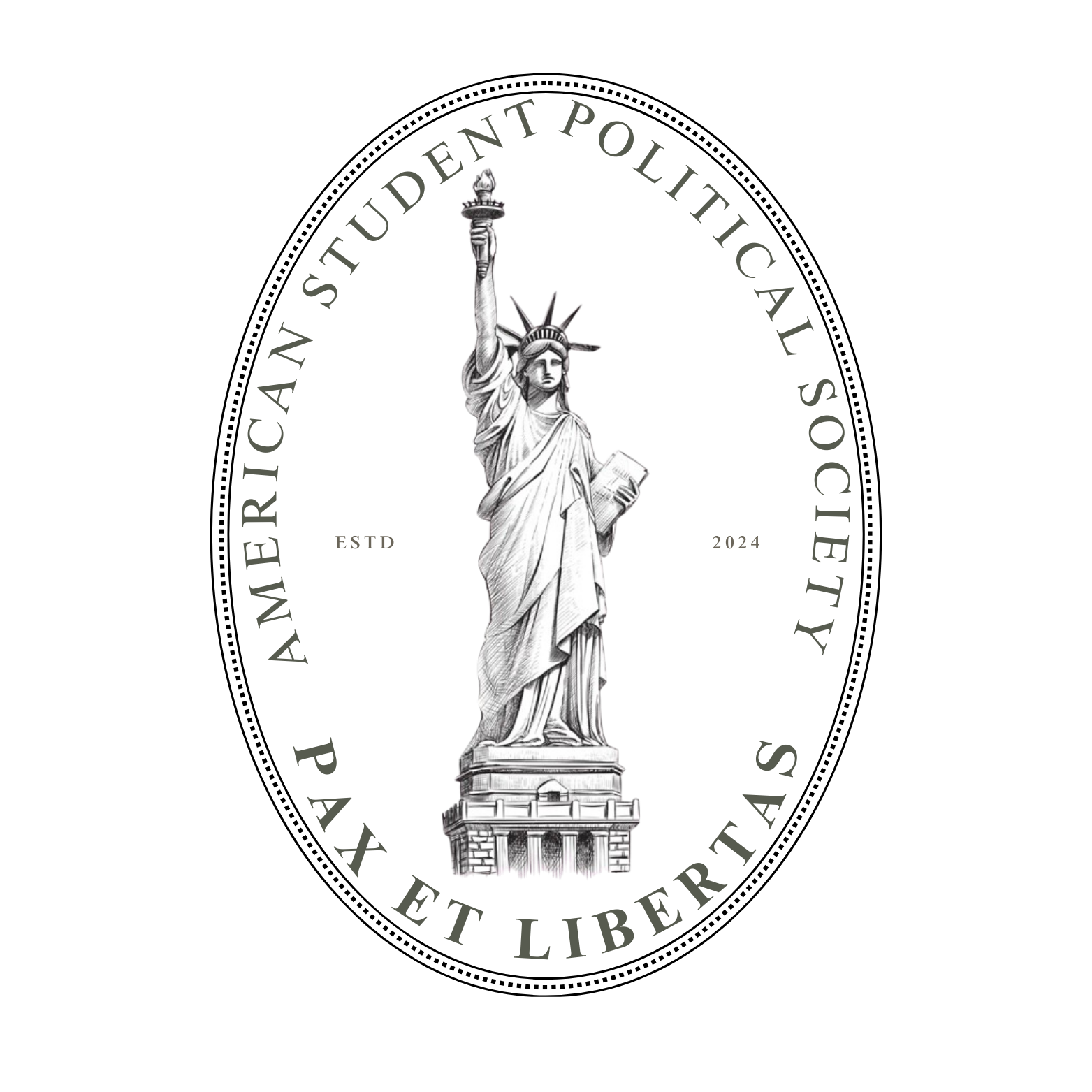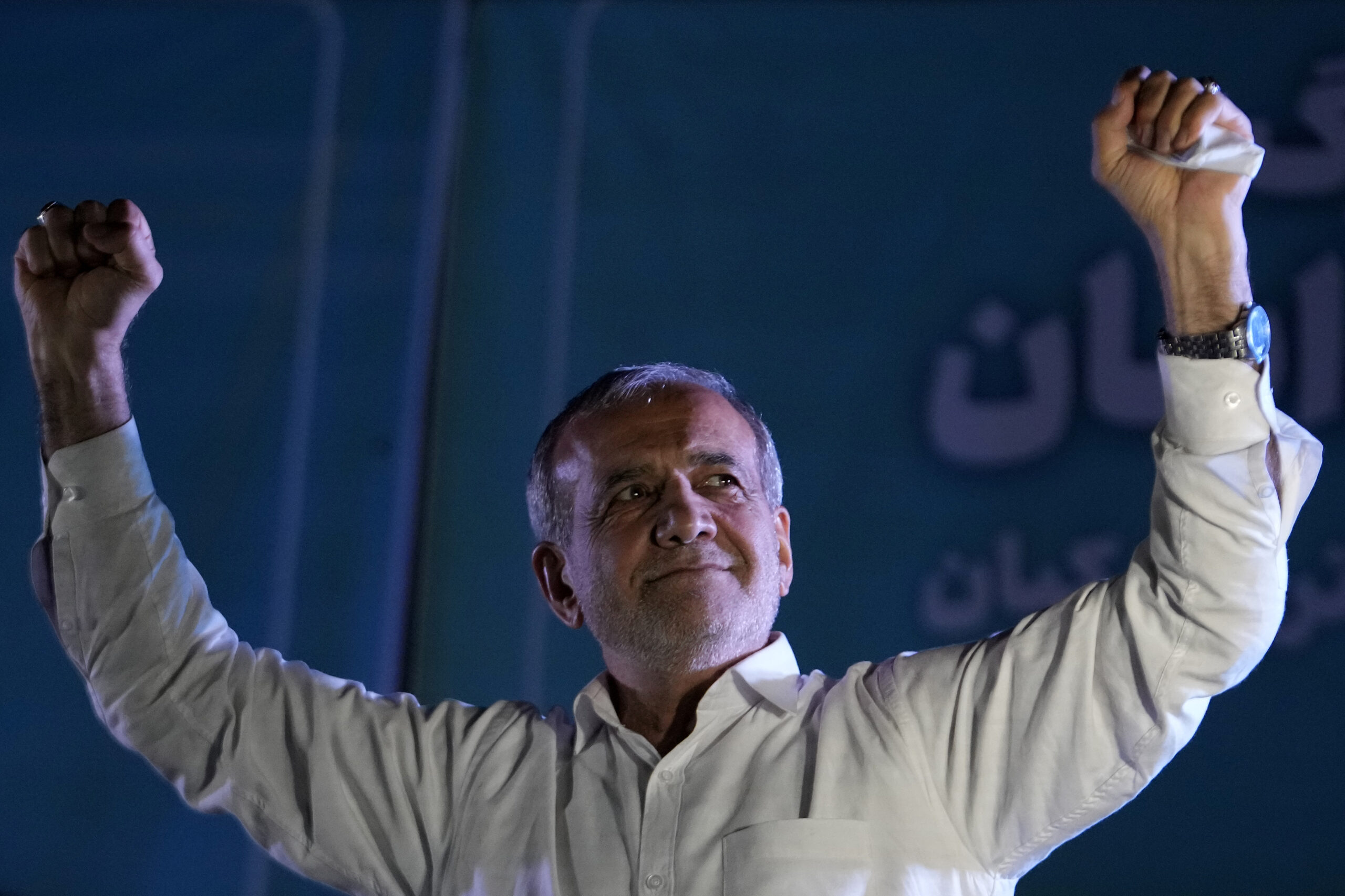By: Parsa Avaz-Barandish
July 1, 2024
In light of an ongoing brutal war in the Middle East, and instability among the leading global powers, with a new defense pact between Russia and North Korea, an election in Iran further strengthens international unease.
Since the founding of the Islamic Republic after the 1979 revolution, Iran, now a country of over 88 million, has led one of the greatest opposition to the Western-led global order. Perhaps most concerning in its fight to end US influence, particularly in the Middle East, is its support of numerous terrorist organizations. Its lack of forbearance domestically has led to large dissent, including the 2022 protests, following the death of Mahsa Amini on behalf of Iran’s “Morality Police” for breaking the mandatory hijab rules.
Nearly 80% of Iranians reject the Islamic regime. Yet, in spite of harsh sanctions destroying the Iranian economy, now with a 45% inflation rate, and dysfunction within the regime itself, as evident with the recent death of President Ebrahim Raisi, a snap election has been called to officially determine President Raisi’s successor.
The greatest problem for Iran is getting people to actually vote. For decades, many Iranians that oppose the regime have boycotted the elections as an act of protest. This is due to the fact that the candidates are vetted through the Guardian Council before being put on the ballot. Thus, perceived “radical” progressives are prevented from being put on the ballot. In addition to this, many Iranians believe that the elections are enormously rigged and unfree making their votes powerless. Now, the voter turnout for this election stands at around 40%, marking the lowest in the history of the Islamic Republic.
Some have argued that an increased turnout in the election for a reformist candidate would be empowering to the Islamic regime, as it is a form of “prolonging” its power – “meeting halfway.” Regardless, the outcome of this election has the potential to drastically pivot Iran’s foreign relations, particularly in the realm of nuclear negotiations, which may result in ramifications either more destructive or formative of a more peaceful international system.
In Iran’s 2024 election, a large group of presidential candidates were vetted to just 6. This has been diminished to a reformist and former cardiologist, Masoud Pezeshkian, and a hardliner conservative and former nuclear negotiator, Saeed Jalili. Although reformist Pezeshkian has been perceived as “just another government-approved candidate,” his approach to Iran’s global interactions diverges sharply from Iran’s traditional belligerence.
Pezeshkian has run on a platform of opening détente with the West. He has been endorsed by key moderates and reformists, such as former President, Mohammad Khatami, arguably one of the most progressive of the Islamic regime in recent history and an advocate of communication with the West. Pezeshkian has also called for a more pragmatic foreign policy and aims at easing nuclear tensions.
Since the US withdrew from the Joint Comprehensive Plan of Action or Iran Nuclear Deal in 2018 under President Donald Trump, Iran has resumed its nuclear activities, breaking the international agreement. This has led to an increase in hostilities internationally, as the threat that the deal prevents, now looms over the West once again. Yet, Pezeshkian has vowed to restart nuclear talks and proposes reviving the Nuclear Deal. Citing a 40% inflation rate over the past four years and an increase in poverty rates, Pezeshkian has discussed the harm sanctions have had on its economy, destroying the livelihoods of millions – the Nuclear Deal being the only way out.
Back in 2006, former US Secretary of State, Henry Kissinger, said that “A modern, strong, peaceful Iran could become a pillar of stability and progress in the region…This cannot happen unless Iran’s leaders decide whether they are representing a cause or a nation – whether their basic motivation is crusading or international cooperation.” Today, Pezeshkian appears to be following this doctrine. Perhaps he realizes the importance of international cooperation for Iran’s domestic tranquility, but also its international influence.
This, however, may appear to be an unrealistic future for a nation so entangled in its theocratic autocracy. Iran’s supreme leader, Ayatollah Khamenei, has the ultimate authority over Iran’s decisions, and therefore, many argue, Pezeshkian would be unable to make any impact. Pezeshkian has appointed former Foreign Minister Mohammad Javad Zarif, who was a key figure in developing the Iran Nuclear Deal. In response to this appointment, the Ayatollah responded by saying “Anyone who is attached to America will not be a good colleague for you.” This demonstrates the supreme leader’s not only unwillingness to negotiate with the US, but also his desire to maintain an isolationist policy when it comes to the West. This has pushed away many Iranians from even giving Pezeshkian a chance, such as Sholeh Mousavi, a teacher in Tehran, who has said, “Pezeshkian’s power as the president to fulfil his campaign promises is zero,” and has determined that he will not vote.
Pezeshkian’s aims are not completely hopeless. Regardless, the alternative to his attempt would be far worse.
The Iran Nuclear Deal was originally agreed upon under the leadership of the current Ayatollah, meaning that the idea of a proliferation pact is not something Khamenei is completely opposed to. In addition, back in 2022, Iran said that it would be once again open to reviving the agreement given that the US rejoined and certain conditions were met. This adds to the fact that a majority of the Iranian population supports Iran’s participation in the pact. Pezeshkian’s aims are viable, however his selection as President may not be.
Pezeshkian’s opponent, hardliner Saeed Jalili, who was a former nuclear negotiator has vowed to continue the hard-line policies of the regime. He has stood very much against the Nuclear Deal and plans to freeze all nuclear negotiations with the West. His opponents compare his policies to those of the Taliban in their severity and unwillingness to interact. Diplomats that have had to work with him have described him as “opaque” and “avoid[ing] straight answers” and called their negotiations a “disaster.” For the West, Jalili provides no easy path to peace. However, his victory in the election is definitely a possibility. Although Pezeshkian accumulated more votes than Jalili, he did not receive the 50% needed to win. The third candidate, another conservative, who didn’t make it to the run-offs, accumulated enough votes, that if given to Jalli, would make him president. As long as voter turnout remains low, a Jalili win is very likely, and so is the near impossibility of a nuclear agreement.
It is well known in Iran and among those in the Iranian diaspora that a vote in Iran’s elections has always been between “bad” and “worse.” Yet, this may be a pivotal election. In a time when war continues on in Gaza and the world waits around unsettled as the results of 64 elections come out – rises in the popularity of populist and radical parties – Iran’s continuous nuclear power only adds more fuel to a seemingly sea-like body of danger building up. Perhaps, the outcomes of Iran’s election can be a hopeful step towards peace for the Middle East and the world, but the potential for a more threatening Iran is not a distant reality.

